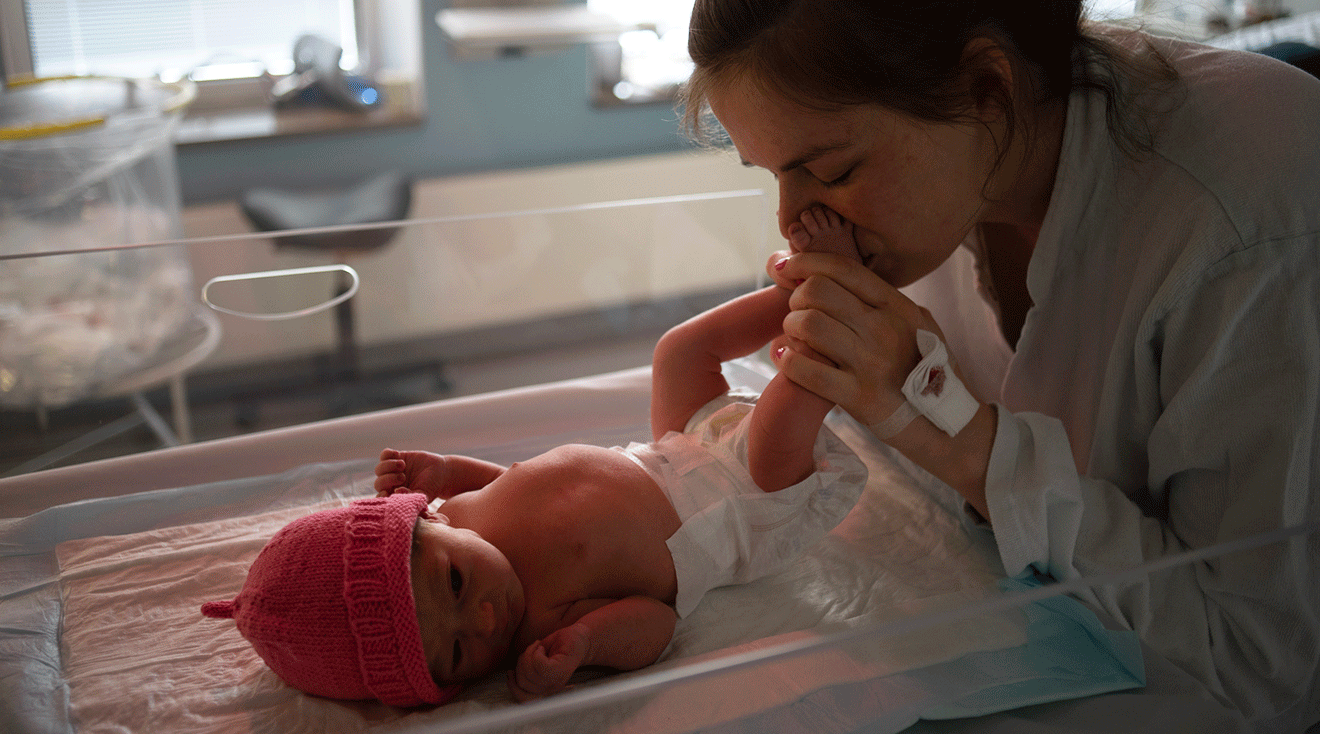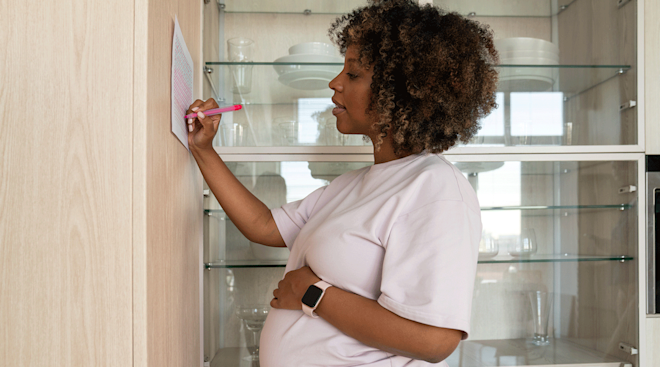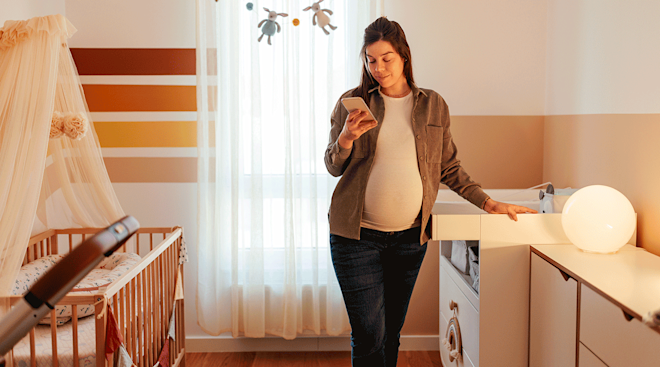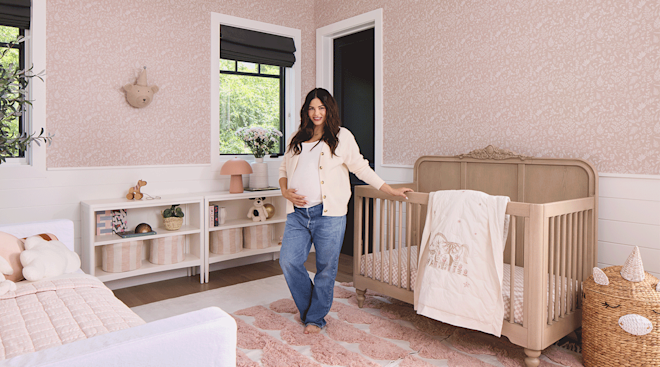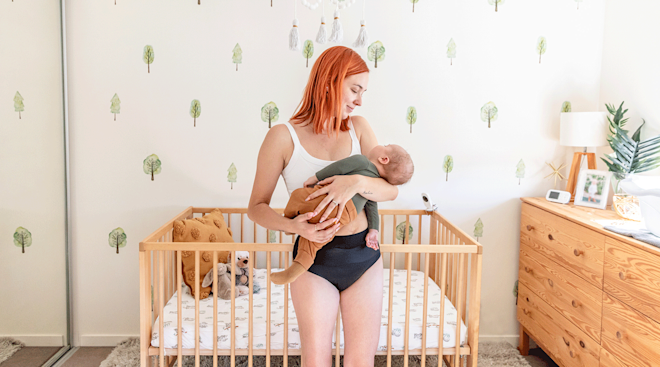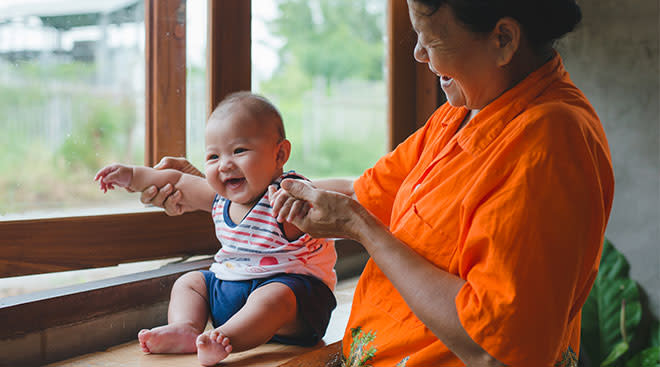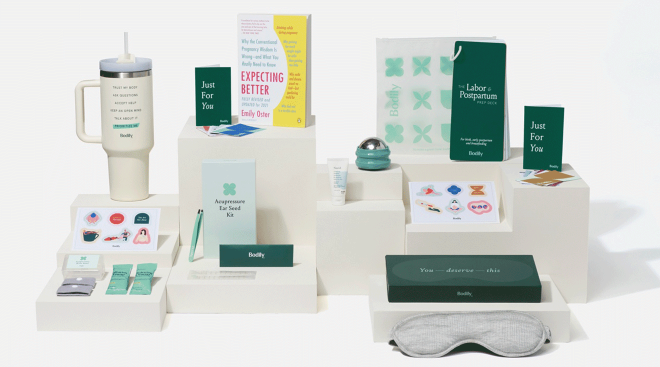How to Prepare in Advance for a Potential NICU Stay–Just in Case
Pregnancy is filled with excitement and anticipation. We do everything we can to set ourselves up for success. We read pregnancy books, blogs and news articles in an attempt to wrap our minds around our changing bodies. We take Lamaze, breastfeeding and prenatal yoga classes to ready ourselves for the physical work ahead. And we set up our homes to accommodate a tiny new person. All of this helps us feel (mostly) prepared to welcome a newborn into our lives.
The good news is that the majority of expecting moms will have the uncomplicated birth they’ve been planning for. However, the experience will be vastly different for those whose babies are admitted into the Neonatal Intensive Care Unit (NICU).
According to the World Health Organization (WHO), one in 10 infants are admitted to the NICU after birth—and yet no one asks, “What did you do to prepare for the NICU?”. The reality is: while some people know ahead of time that their baby will be taken to the NICU, not everyone expects or plans for this. And this surprise feeling of helplessness can make a NICU experience all the more overwhelming and anxiety-provoking for new parents. But understanding what happens in the NICU and what a hypothetical stay might look like for you and baby can help to answer your questions and quell major concerns.
My name is Melissa Braun, and I founded NEOwell along with Margie Kuczkowski. As neonatal and pediatric nurse practitioners, we strive to educate and support parents before, during and after their NICU journeys. And understanding what this hypothetical road might look like is the first step to feeling empowered as a new parent. Ready to get a grasp on the basics? Below, we break down what to expect when you’re not expecting the NICU.
Some medical conditions known before birth put baby at higher risk for a NICU stay. For infants with a prenatal diagnosis of a congenital heart or birth defect, a NICU stay is very likely. However, there are other reasons—sometimes unexpected—that baby must be in the NICU. Low glucose, jaundice, infection, low birth weight, birth trauma and respiratory distress are some examples of why baby might be admitted to the NICU.
Here are some tips to help you prepare for a possible NICU stay:
Before delivery
- Ask your physician what level of NICU is at your delivering hospital. There are four levels of NICUs, each with differing capabilities. Infants born at a lower level are transferred to a higher-level NICU if medically necessary.
- Organize pumping supplies if you’re planning on breastfeeding baby, such as a hands-free pumping bra and a hospital-grade double electric pump (you can often rent a pump from your hospital or have your ob-gyn prescribe a pump so insurance will cover the cost).
- Ask your employer how to use your FMLA before delivery. The NICU social worker will be able to assist in providing your employer with the necessary paperwork for your medical leave.
- Set a designated point person for communication with friends and family. It’s exhausting to update everyone in your circle. Having a designated contact person will help with regular updates. Everyone will want to know when baby will be coming home, which can be a complicated question to answer.
- Choose a pediatrician close to your home. After discharge, you’ll have many follow-up appointments.
- Buy a car seat before your expected delivery date. If you know that baby is growth-restricted or will be born prematurely, the car seat must have a minimum weight requirement of four pounds.
At the time of delivery
- If you plan on providing breast milk for baby, pump within the first hour after delivery. Most labor and delivery rooms don’t have breast pumps, so ask your nurse to provide one. Research shows that pumping or hand expressing milk within the first hour after delivery significantly improves milk production weeks after birth.
- You’ll most likely be pumping at baby’s bedside. Not all NICUs have private rooms. If your NICU is one open bay, privacy screens may be provided. You can also bring a cover for added privacy.
- You’ll be encouraged to participate in kangaroo care. Consider wearing a button-down shirt to make it easier to do skin-to-skin and chest-to-chest with baby.
- The NICU is often a separate unit from postpartum. You’ll be walking over to visit baby. Consider wearing comfortable shoes and clothing. Hospital socks and gowns are not meant for walking.
- Bring a journal to write down daily notes and questions. Baby’s doctor will give rounds at their bedside daily, so be prepared to ask questions.
- Make sure to bring your phone charger so you can take lots of pictures and videos of baby’s first days.
After you are discharged from postpartum but baby remains in the NICU
- Baby must be added to your insurance within 30 days after birth.
- Have headphones to tune out the NICU noise (listen to a book or podcast).
- Bring a small cooler bag to transport your pumped milk from home to the hospital and a laundry bag to bring home baby’s dirty laundry.
- Find a way to connect with your partner. Go out to lunch or for walks before the baby comes home.
- Bring a Polaroid camera to leave at the bedside for nurses to document baby’s milestones.
After baby is discharged from the NICU
- Have a yearly calendar. You’ll have appointments scheduled months in advance.
- Make sure you’re still taking time for yourself. Take a walk with baby.
- Celebrate milestones. Take pictures. Remember, the home milestones are just as important as the ones that took place at the hospital.
Please note: The Bump and the materials and information it contains are not intended to, and do not constitute, medical or other health advice or diagnosis and should not be used as such. You should always consult with a qualified physician or health professional about your specific circumstances.
Plus, more from The Bump:
Melissa Braun, MSN, CRNP, CBC, is a licensed and board-certified neonatal nurse practitioner with over 15 years of NICU experience. She holds a bachelor of science in nursing from Georgetown University and a master of science in nursing from The Ohio State University. She's also a certified breastfeeding counselor and neonatal resuscitation provider instructor. Melissa resides in Arlington, Virginia, and has three children.
Margie Kuczkowski, MSN, CRNP, CBC, is a licensed and board-certified pediatric nurse practitioner with 20 years of NICU experience. She attended the University of Virginia for her undergraduate and graduate degrees in nursing. As a mother of twins born at 28 weeks, Margie uses her personal and professional experience to guide her practice. She's also a certified breastfeeding counselor and neonatal resuscitation provider instructor. Margie resides in Falls Church, Virginia, and has three children.
World Health Organization (WHO), 1 in 10 babies worldwide are born early, with major impacts on health and survival
Learn how we ensure the accuracy of our content through our editorial and medical review process.
Navigate forward to interact with the calendar and select a date. Press the question mark key to get the keyboard shortcuts for changing dates.
































